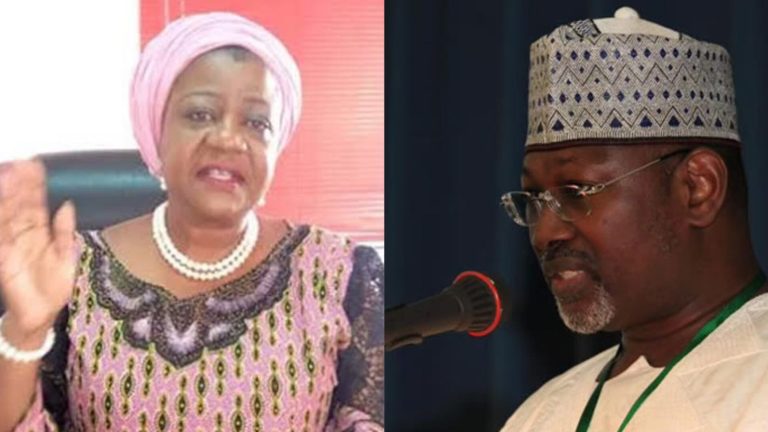A former chairman of Independent National Electoral Commission, INEC, Attahiru Jega, has cautioned President Muhammadu Buhari against the nomination of his aide, Lauretta Onochie, as electoral commissioner.
The nomination of Ms Onochie, who told a Senate committee that she resigned from APC in 2019, has elicited fierce opposition from Nigerians.
But appearing on Channels TV’s Politics Today on Sunday, Mr Jega said the appointment of Ms Onochie despite her partisanship and British citizenship may cause lack of confidence in the electoral body.
“This kind of controversy is really avoidable. Any person who generated such a controversy, the appointing authorities should be careful because you don’t want to appoint anybody that can raise suspicions or doubts or can lead to a loss of trust of the electoral management body.
“I’m sorry to say that from some of the documents that I have been privileged to see, both about her British citizenship and the very active participation in a political party up until 2019, you will try to avoid appointing such people into an electoral commission — because it can generate controversy.
“To be honest, the president can also withdraw that nomination. After all, there are so many women with credibility, with capacity, competence in both Delta and across Rivers, so why bring someone that will generate controversy and raise suspicions about the intention of the appointment.”
On the issue of electronic transmission of election results, which was locked by the Nigerian lawmakers, the former vice chancellor said electronic transfer of result will check collation center fraud.
“When one looks at the draft of the electoral bill currently in circulation, which the national assembly hopes to pass before they go on recess, with regards to utilisation of technology, there is a very contradictory provision there.
READ ALSO: Kaduna: Bandits Kidnapped Emir, Demands ₦200m for Ransom
While they permitted INEC to use electronic voting, they now said provided that INEC does not use electronic transmission of results. It is really counterproductive.
“Electronic transmission will ensure that the traditional fraudulent activities of changing results from the collation centres will now be things of the past, so it is very important that our lawmakers recognise how important it is.
“And frankly, not permitting electronic transmission of results will even create an impression that the legislators are afraid and unconcerned about the integrity of results,” Mr Jega added.













